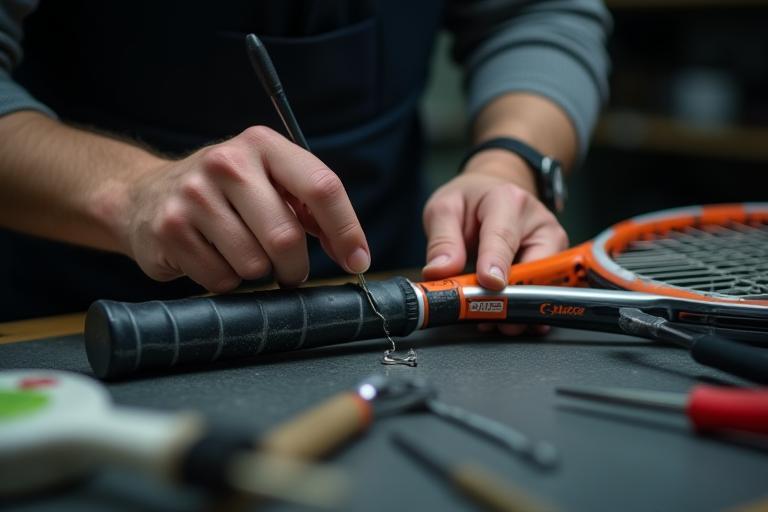ヤマートについて

あなたのスポーツライフを豊かにする、信頼のパートナー。
ヤマートスポーツ用品は、創業以来、日本のスポーツ文化の発展に貢献してまいりました。 私たちは単にスポーツ用品を販売するだけでなく、スポーツを通じて人々の生活を豊かにし、 地域社会に活力を与えることを使命としています。
私たちの価値観は、品質(Quality)、 コミュニティ(Community)、 そして情熱(Passion)です。 厳選された高品質な製品を提供し、誰もがスポーツを楽しめるコミュニティを育み、 そしてスポーツへの尽きることのない情熱を共有します。
初心者の方からプロのアスリート、企業や地域団体まで、 あらゆるニーズに応えるワンストップソリューションを提供することで、 お客様一人ひとりのスポーツ目標達成をサポートします。
提供サービス
ヤマートスポーツ用品は、お客様の多様なスポーツニーズに応えるため、幅広いサービスを提供しています。 最高の製品から専門的なサポートまで、私たちにお任せください。

スポーツ用品販売
最新のランニングシューズからチームスポーツのユニフォーム、フィットネス機器まで、厳選された国内外のトップブランドを幅広く取り揃えています。専門知識豊富なスタッフがお客様一人ひとりに最適なギア選びをサポートします。
詳細を見る
施設レンタル・管理
フットサルコート、バスケットボールコート、多目的スタジオ、ジムスペースなど、様々なスポーツに対応した高品質な施設を提供しています。個人利用から企業や団体のイベントまで、快適な環境でスポーツをお楽しみいただけます。
予約する
スポーツイベント企画
地域社会の活性化とスポーツの普及を目的としたイベントを企画・運営しています。マラソン大会、フットサル大会、親子スポーツ教室など、年齢やレベルを問わず誰もが楽しめるイベントを通じて、スポーツの素晴らしさを共有します。
イベントを見る
コーチング・トレーニング
経験豊富な認定コーチ陣によるパーソナルトレーニングやグループレッスンを提供。お客様の目標(スキルアップ、体力向上、健康維持など)に合わせたカスタマイズされたプログラムで、効果的なトレーニングをサポートします。
プログラムを探す
オンラインストア
店舗で取り扱う幅広い商品を24時間いつでもどこからでも購入できるオンラインストアを運営しています。限定品や先行販売アイテムも充実しており、全国どこへでも迅速にお届けいたします。
ストアへ
法人向けウェルネス
企業の従業員の健康増進、チームビルディング、福利厚生をサポートするカスタマイズされたウェルネスプログラムを提供。オフィスでの運動指導から、施設を利用したスポーツイベント企画まで、企業のニーズに合わせて柔軟に対応します。
見積もりを依頼
用具修理・メンテナンス
大切なスポーツ用具を長く安全にご利用いただくために、専門の技術者による修理とメンテナンスサービスを提供しています。ラケットのガット張り替えからシューズの修理、スキー板のワックスがけまで幅広く対応いたします。
修理を依頼ヤマートが選ばれる理由
数あるスポーツ用品店の中からヤマートが選ばれ続けるには理由があります。 お客様の期待を超えるサービスとサポートを提供し続けること、それが私たちの誇りです。
専門知識豊富なスタッフ
各スポーツ分野に精通したベテランスタッフが、お客様一人ひとりのレベルや目標に合わせた最適な製品選びから、トレーニングアドバイスまで、パーソナルな視点で丁寧にサポートいたします。
厳選された高品質製品
世界中のトップブランドから、機能性、耐久性、デザイン性を兼ね備えた製品を厳選。お客様が安心して長く使える、真に価値のあるアイテムだけを取り揃えています。
地域コミュニティへの貢献
地域スポーツイベントの企画・運営、学校やクラブチームへの支援を通じて、スポーツを通じた健康で活力ある地域社会の実現に貢献しています。
一貫したサポート体制
製品の購入から、アフターメンテナンス、専門的なトレーニングプログラム、さらには施設の利用まで、お客様のスポーツライフを包括的にサポートする体制を整えています。
アクセスしやすい立地
大阪の中心部に位置し、主要駅からのアクセスも抜群。お仕事帰りや休日のショッピングにも気軽に立ち寄れる便利なロケーションです。
お客様の声
ヤマートスポーツ用品をご利用いただいたお客様からの温かいお言葉を一部ご紹介します。 お客様の満足が私たちの最大の喜びです。

「ヤマートで買ったランニングシューズは、想像以上に足にフィットし、記録更新に繋がりました!スタッフの方のアドバイスも的確で、とても満足しています。」
田中 健一様
ランニング愛好家

「会社のフットサルイベントで施設をレンタルしました。広々として清潔で、社員からも大好評でした。また利用させていただきます!」
株式会社ミライソリューションズ 人事部
法人顧客

「子供が野球教室に通っていますが、コーチの熱心な指導のおかげでみるみる上達しています。スポーツの楽しさを教えてくれる場所です。」
佐藤 由美子様
保護者

「オンラインストアの品揃えが豊富で、探していた専門的なアイテムが見つかりました。配送も早く、梱包も丁寧で助かりました。」
鈴木 浩司様
スポーツ学生

「水泳用品を探していたのですが、店員さんが丁寧に相談に乗ってくれ、最適なゴーグルと水着を見つけることができました。おかげでスイムがもっと楽しくなりました!」
山本 愛様
スイマー

「会社の健康増進プログラムでヤマートさんの法人向けウェルネスを利用しています。社員のモチベーションも上がり、生産性向上にも繋がっていると感じています。継続して利用したいです。」
木村 和彦様
総務部部長
イベント&コミュニティ

スポーツで繋がり、地域を活性化する。
ヤマートスポーツ用品は、スポーツを通じて人々の交流を深め、健康で活気ある地域社会を創造することに力を入れています。 私たちは年間を通じて、様々なイベントを企画・開催し、皆様の参加をお待ちしております。
- 定期的なランニングクリニック: 初心者から上級者まで、正しいフォームやトレーニング方法を学べます。
- フットサル・バスケットボール交流戦: 地域住民や企業チームを招き、気軽にスポーツを楽しめる場を提供。
- ジュニアスポーツ体験教室: 子供たちが様々なスポーツに触れ、身体を動かす楽しさを発見する機会。
- 健康ウォーキングイベント: 美しい自然を歩きながら、地域コミュニティとの絆を深めます。
詳細はイベントカレンダーをご覧ください。一緒にスポーツを楽しみ、新しい仲間を作りましょう!
イベントカレンダーを見る最新情報
ヤマートスポーツ用品からの最新ニュース、スポーツのトレンド、イベントレポート、役立つギア情報などをお届けします。

2024年 春の最新ランニングギア徹底解説!
2024年4月10日
今年の春に注目すべきランニングシューズやウェア、アクセサリーを一挙にご紹介。あなたのランニングをさらに快適に、そしてパフォーマンスアップをサポートするアイテムが満載です。

第3回 ヤマート地域フットサルカップ開催レポート
2024年3月28日
先日開催された地域フットサルカップは大盛況のうちに幕を閉じました。参加者の熱気あふれる試合の様子と、イベントを通じて生まれた感動の瞬間をお届けします。

スポーツ初心者必見!失敗しないギア選びガイド
2024年3月15日
これからスポーツを始める方のために、必要なギアの選び方からお手入れ方法まで、役立つ情報が詰まったガイドブックを公開しました。ぜひご活用ください。
あなたのスポーツ目標、私たちがサポートします。
スポーツ用品の購入から、施設の利用、専門的なトレーニング、 そして企業ウェルネスプログラムまで、どんなことでもお気軽にご相談ください。
お問い合わせ・ご相談はこちらお問い合わせ
メッセージを送る
連絡先情報
住所: 〒541-0048 大阪市中央区本町3丁目5-12 本町ガーデンシティ12F
電話番号: +81-6-6262-8787
メールアドレス: info@
営業時間:
月〜金: 10:00 - 19:00
土日祝: 10:00 - 18:00
地図
※埋め込み地図にはAPIキーが必要です。実際のデプロイ時には「YOUR_GOOGLE_MAPS_API_KEY」を置き換えてください。
